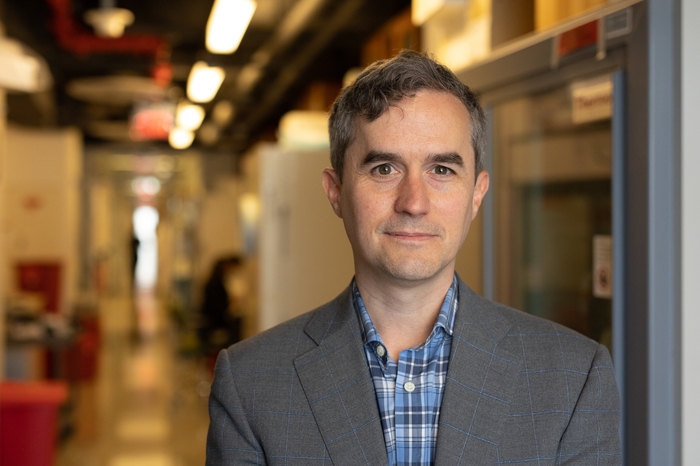Dr. Conor Liston, professor of psychiatry and of neuroscience in the Department of Psychiatry and the Feil Family Brain and Mind Research Institute at Weill Cornell Medicine, received the 2023 Thomas William Salmon Medal in Psychiatry from The New York Academy of Medicine.
The award honors those who have demonstrated exceptional dedication to advancing the fields of psychiatry, neurology and mental hygiene, and was presented at a ceremony on Oct. 18 in New York City.
“It is a huge honor and incredibly humbling to be included among the list of recipients for this award,” Dr. Liston said.
Dr. Liston’s research focuses on the management of treatment-resistant mood disorders, including depression and bipolar disorder. One of his long-term research goals is to better understand how brain circuits in the prefrontal cortex—the part of the brain responsible for high-level thinking and behavior—support learning, memory and motivation, and how these functions are disrupted in depression, OCD and other neuropsychiatric disorders.
In his investigations, Dr. Liston and his team have recorded and manipulated brain circuit activity in mice to try and deduce how their brains encode information about expected rewards and the expected effort required to obtain those rewards. In a 2021 study, Dr. Liston found that prefrontal cells play a critical role in regulating adaptive reward-seeking behavior by maintaining a memory of how recent decisions were paired with rewards.
His research is also concerned with how factors such as stress and the use of antidepressants can influence the function of these brain circuits, with a particular interest in exploring the mechanisms that drive mood state transitions over time.
“Why does a person get depressed today as opposed to last week or next month? Or why do some people exposed to stressful life events become depressed whereas others can experience tons of stress but never get depressed?” Dr. Liston said. “Conversely, when you treat a person with an antidepressant, what initiates their recovery from depression and what sustains the recovery over time?”
Dr. Liston’s research program is also developing neuroimaging technologies to help rethink how conditions like depression are diagnosed. Right now, two patients may exhibit symptoms that are on opposite ends of the spectrum – sleeping too little and sleeping too much, for instance – and both could be diagnosed with depression and given the same treatment, he said. By analyzing functional magnetic resonance imaging (fMRI) brain scans of patients with clinical depression, he has identified biomarkers in depression, which has allowed him to categorize these patients into four unique subtypes and would ideally help determine which patients would benefit from a given treatment.
“It’s kind of remarkable that the treatments we have work as well as they do on many different kinds of people,” he said. “But I think we can do better, and we're trying to discover ways of grouping individuals into subtypes – based both on their symptoms and their biology – that could inform treatment selection decisions.”

